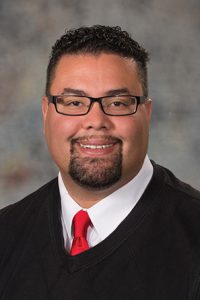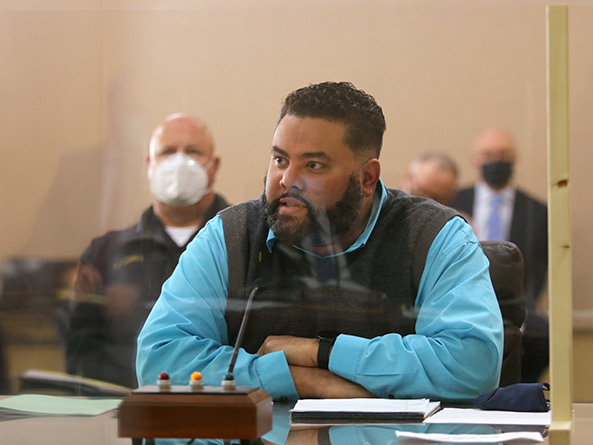New requirements proposed for law enforcement
Members of the Judiciary Committee heard testimony Feb. 3 on a bill to increase accountability and transparency for Nebraska law enforcement officers.

LB551, sponsored by Omaha Sen. Justin Wayne, would require law enforcement agencies to maintain publicly accessible records regarding officer discipline and uses of excessive force.
Every profession in the state that requires licensure maintains a public database of disciplinary findings, Wayne said, except for law enforcement. He said it does not make sense for a person with the ability to use lethal force not to be held to the same standards as a child care worker.
“Do we do just enough for law enforcement and advocates to feel comfortable with a step forward, or do we do what the community has asked for and [provide] oversight?” Wayne said.
The bill would require each law enforcement agency to maintain a record of all incidents of officer discipline, including the officer’s name, investigatory findings, discipline imposed, whether or not there was an appeal or grievance and other pertinent information.
Each agency would transmit its discipline records — to be maintained for 10 years — to the Nebraska Commission on Law Enforcement and Criminal Justice on a quarterly basis. The commission would post such data on its website for public access.
Law enforcement agencies also would be required to establish a formal process to receive and process complaints of police misconduct under LB551. The internal investigation of such claims would be completed within 100 days of receiving the complaint by an officer with at least 24 hours of relevant investigatory training.
Cases involving the possible revocation of an officer’s certification would be forwarded to the commission, which would have 180 days to subpoena relevant records and investigate the claim.
Spike Eickholt, representing the ACLU of Nebraska, spoke in support of LB551. Law enforcement is a state-certified profession, he said, but unlike other certified professions, law enforcement officers have the ability to arrest and even kill.
“Like any profession, discipline, sanctions and other things … that can lead to the loss of that license should be publicly available,” Eickholt said.
Opposing the bill was Jim Maguire, president of the Nebraska Fraternal Order of Police. When an officer is involved in a shooting, they are legally compelled to complete a thorough statement detailing their involvement, he said.
“We have to be very careful when we talk about opening ourselves up to allowing [legally-protected] compelled statements into an open forum,” Maguire said.
Bruce Ferrell, representing the Police Chiefs Association of Nebraska, also spoke in opposition. As proposed, the public database would be overly broad, he said, and perhaps only should include only officers who are decertified due to misconduct.
“While open dialogue is constructive, the amount of information that would be required for this database is a concern,” Ferrell said. “Would a minor complaint, reprimand or written admonishment for coaching purposes be required?”
Among other provisions, LB551 would require a psychological evaluation of all applicants to determine fitness for duty. Applicants seeking entry-level law enforcement certification would be required to complete 40 hours of instruction on de-escalation. Eight hours of anti-bias and implicit bias training would be required of new recruits and officers would be required to complete 40 hours of continuing education annually on a variety of subjects.
LB551 also would prohibit a police officer from intentionally using a chokehold on a person, except when deadly force has been authorized.
Similarly, an officer would be prohibited from using a carotid restraint control hold — a method of rendering a person unconscious by restricting blood flow by compressing the carotid arteries in the neck — on any person unless the officer believes the person would cause death or bodily injury to others or deadly force has been authorized and the officer in question has been trained on the restraint technique.
Under the bill, each law enforcement agency would be required to adopt a policy before Jan. 1, 2022, stating that an officer must intervene when he or she reasonably believes that another officer is engaged in the use of excessive force.
The committee took no immediate action on LB551.


